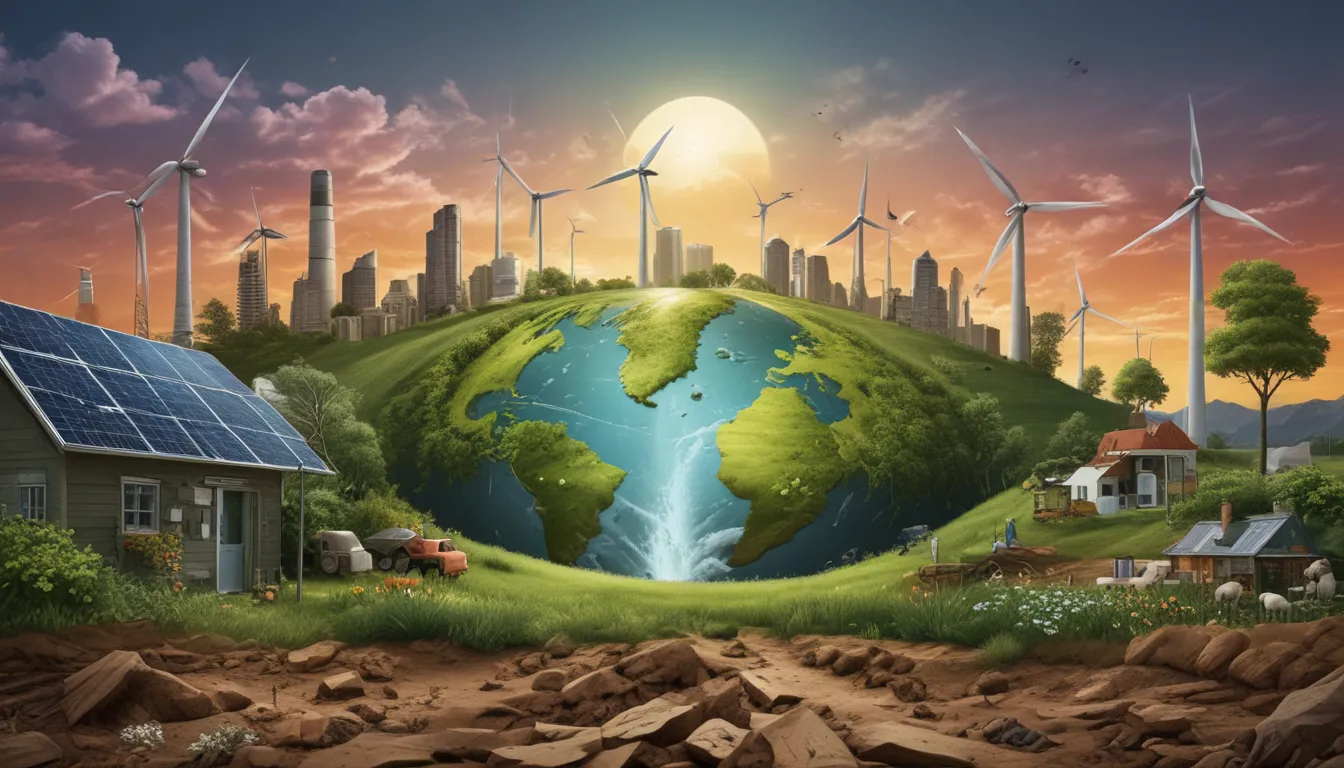A Note About Images: The images used in our articles are for illustration purposes only and may not exactly match the content. They are meant to engage readers, but the text should be relied upon for accurate information.
Non-renewable energy has long been the backbone of global energy consumption, powering our world for centuries. However, as we become more aware of the environmental impact and limited availability of these resources, the need to transition towards cleaner and sustainable alternatives becomes increasingly urgent. In this article, we will explore 14 extraordinary facts about non-renewable energy, shedding light on the importance of conservation, implications for future generations, and the pressing need for sustainability.
Importance of Non-Renewable Energy
- Non-renewable energy sources like fossil fuels and nuclear power have significant environmental impacts and are finite, emphasizing the need to transition to cleaner and sustainable energy alternatives for a healthier future.
- The control and distribution of non-renewable energy resources can lead to conflicts and geopolitical struggles, highlighting the importance of developing renewable energy sources for global stability and sustainability.
Fossil Fuels: The Primary Energy Source
Fossil fuels, including coal, oil, and natural gas, account for the majority of our energy consumption. These resources were formed millions of years ago from the remains of ancient plants and animals. Coal, in particular, is the most abundant fossil fuel on Earth, with reserves estimated to be larger than oil and natural gas reserves. However, the extraction and combustion of coal have significant environmental impacts, including air pollution and carbon emissions.
Non-Renewable Nature
Non-renewable energy sources are finite and cannot be replenished within a human lifespan. Once these resources are depleted, they are gone forever, highlighting the importance of transitioning to renewable alternatives that are sustainable in the long run.
Diversity of Non-Renewable Sources
Crude oil, also known as petroleum, is not only used for fuel production but also serves as a raw material for various other products, such as plastics, fertilizers, and pharmaceuticals. Natural gas, on the other hand, is the cleanest-burning fossil fuel, emitting fewer greenhouse gases and pollutants compared to coal and oil.
Nuclear Power: A Controversial Option
Nuclear power accounts for a significant share of non-renewable energy production. While it does not produce greenhouse gas emissions, it poses concerns regarding radioactive waste disposal and potential nuclear accidents. Research and development efforts are focused on improving the efficiency and reducing the environmental impact of nuclear energy technologies.
Environmental Consequences
The extraction, processing, and combustion of non-renewable resources contribute to air pollution, climate change, and habitat destruction. Governments around the world provide substantial subsidies to support the extraction and use of non-renewable energy sources, which can impede the progress of renewable energy development.
Global Impact and Alternatives
Non-renewable energy consumption varies globally, with some countries heavily relying on these sources due to economic factors and resource availability. The shift towards renewable energy sources is crucial for a sustainable future, as expanding renewable energy sources can mitigate emissions and reduce the impact on public health.
Geopolitical Implications
The control and distribution of non-renewable energy resources have often led to conflicts and geopolitical struggles, as countries vie for energy security and economic advantage. Carbon capture and storage (CCS) technology offer a potential solution to reduce the carbon footprint associated with non-renewable energy sources.
Public Health Concerns
Non-renewable energy sources have a significant impact on public health, with poor air quality resulting from the combustion of fossil fuels and nuclear accidents leading to various health issues, including respiratory problems and increased cancer risks. Transitioning to cleaner energy sources is essential for protecting public health.
Future Sustainability
As the environmental and economic costs of non-renewable energy become increasingly evident, the transition to renewable energy sources becomes imperative for a sustainable and resilient future. Scientists and engineers are continuously working on advancing cleaner non-renewable energy technologies to reduce environmental impact and promote sustainability.
Conclusion: A Call for Transition
Understanding the extraordinary facts about non-renewable energy is crucial in making informed decisions about our energy consumption and working towards a more sustainable future. By embracing renewable technologies and reducing our reliance on non-renewable energy, we can create a healthier and more sustainable world for generations to come.
FAQs
-
What is non-renewable energy?
Non-renewable energy refers to sources that cannot be easily replenished, such as fossil fuels like coal, oil, and natural gas. -
Why is non-renewable energy a concern?
Non-renewable energy sources are finite and contribute to environmental issues like pollution and climate change. -
How much of our energy comes from non-renewable sources?
Non-renewable sources currently account for around 80% of global energy consumption. -
Can we transition to renewable energy completely?
While possible, transitioning entirely to renewable energy requires investments, technological advancements, and policy changes. -
What are the alternatives to non-renewable energy?
Renewable sources like solar, wind, hydroelectric, and geothermal power offer cleaner and sustainable alternatives to non-renewable energy.
Your Feedback Matters
Our commitment to delivering trustworthy and engaging content drives our work. Each fact on our site is contributed by real users, ensuring diverse insights and reliable information. Trust in our dedication to quality and authenticity as we explore and learn together.






